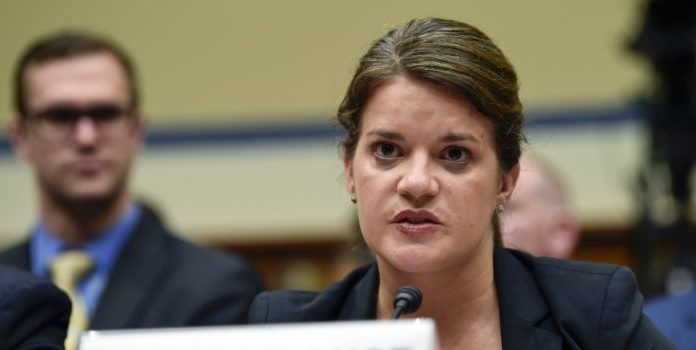(Headline USA) A conservative-backed initiative to publish voter registration records from across the country online for public consumption can move forward over the objections of New Mexico election regulators, a federal judge has ordered in a preliminary opinion.
Albuquerque-based U.S. District Court Judge James Browning issued an order last Friday preventing New Mexico state prosecutors from pursuing allegations of possible election code violations against the creators of VoteRef.com.
The VoteRef.com website provides searchable access to voter registration records by name and street addresses, often indicating when people voted in past elections.
The online records do not say for which candidates the people voted or how they voted on initatives. Party affiliation is listed for voters in some states but not all.
The Voter Reference Foundation that created the website advocates for voting accountability by making voter information more accessible to the public.
Following the ruling, the foundation said it would post New Mexico voter rolls online starting Tuesday.
The decision doesn’t apply to New Mexico voters enrolled in a confidential address program aimed at protecting victims of domestic violence and stalking.
New Mexico election regulators contend that the effort violates state restrictions on the purchase and dissemination of voter registration records—and is likely to discourage voter participation because people may opt out if they know that some of their voting information is being made public.
New Mexico Secretary of State Maggie Toulouse Oliver, a Democrat, in March referred the matter the attorney general’s office for possible prosecution of the Voter Reference Foundation, which published New Mexico registration records online at the time after obtaining them through an out-of-state business.
State law restricts the use of voter registration information to political campaigning and election- or government-related activities.
The foundation—backed by former GOP Senate candidate Doug Truax of Illinois—took its New Mexico records offline in response and sued the state in federal court, alleging violations of due process and free speech guarantees.
The judge’s order blocks prosecution while the case advances toward trial and said that the Voter Reference Foundation is likely to prevail in its claim as the victim of viewpoint discrimination by election regulators.
Browning said New Mexico state law “does not prohibit Voter Reference—or any organization—from posting voter data online.”
The creators of VoteRef.com are “substantially likely to succeed on the merits of their claim that the Secretary of State’s referral of Voter Reference to the Attorney General for criminal prosecution and her public statements about the referral are an unconstitutional prior restraint on protected speech,” Browning said.
Truax, founder of the Restoration of America organization that funds VoteRef.com, said his group “won’t be intimidated by politicians who, for some reason, don’t want to give the people of their state easy access to election records they pay for.” He is an advocate for limiting voting access largely to in-person voting on Election Day with photo ID requirements and no same-day registration.
VoteRef.com already publishes voter registration information online from at least 28 states and Washington D.C.
Toulouse Oliver spokesman Alex Curtas called the judge’s opinion a “blow to protecting the privacy rights of every New Mexican voter.”
“The fear now is that voters will be less likely to participate in our elections because their voting information—name, residential address, party affiliation, voting history, and year of birth—will be made easily available online for anyone to obtain and potentially manipulate,” Curtas claimed.
Some New Mexico neighborhoods this year have been the focus of door-to-door canvassing by volunteers for a group called New Mexico Audit Force that is part of an informal effort to review of election irregulatities alleged to have occurred in the 2020 election.
The door knocking—ostensibly to verify individual voter registrations at peoples’ homes—has generated voter intimidation concerns from left-wing activist organizations and counterclaims of threats against canvassers.
Adapted from reporting by the Associated Press

